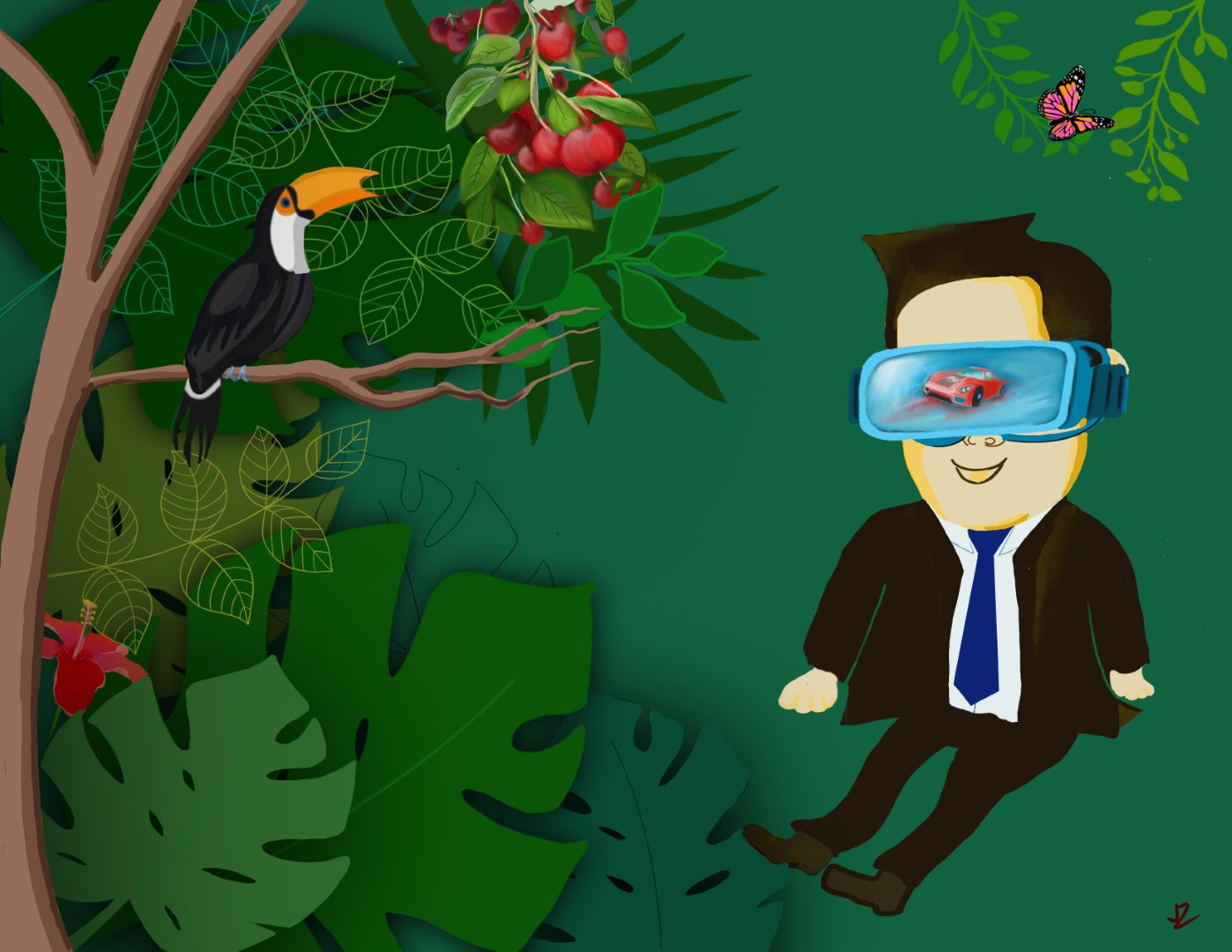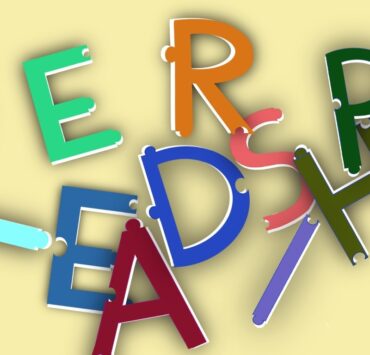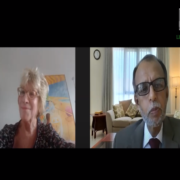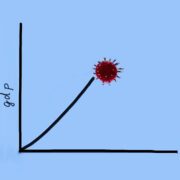CHOICELESS IN A WORLD FULL OF CHOICES

Dr. Sherif Aziz is an engineer turned development strategist, digital…
Information and Communication Technology (ICT) has become ubiquitous. Like electricity, it is now a critical utility for day-to-day activities. Internet of Things (IoT)1, artificial intelligence and autonomous cars have become absolute realities. Now, citizen e-readiness isn’t a major issue in most parts of the world, but its real benefits to the people are increasingly a challenge, and for various reasons!
This is an abridged reprint of an article with the same title I first published elsewhere in November 2017. I had then written that many a thing we do in the cyberspace is like closing our eyes and bathing naked in the city square. Around March 2018, the Cambridge Analytica exposé happened. This was followed by several stories of data breach, data hijacking, ransomware attacks, and finally, now, we have this undetectable spyware on smartphones. As per media reports, this is a ‘zero click’ spyware and more advanced than its earlier ‘spear phishing’ version. As technology becomes pervasive, human values are eroding from underneath the social structures evolved and refined over the centuries, and so is democracy too!
Two billionaires have already made their travel to the outer space, and space tourism could be one of the next major disruptions, wherein a seat that now costs at least USD 250000 may become available for far less. But we also know that more than half of the world population is yet to experience safe drinking water, a wholesome meal, and safe living. At the same time, we also do not know how to address the ‘climate emergency’, needless to mention about the miseries of the ongoing pandemic.
Digital technologies have remarkably transformed our lives. Over the last few decades, these technologies became accessible to almost all. At the same time, some of these so-called ‘disruptive technologies’, created by the young minds in their twenties were rolled out globally for mass consumption, with no standards, no rating, or no certification; their influence becoming larger than life.
If ecological destruction was the major negative impact of the industrial revolution, things like psychological distress could be the ill effect of the information revolution. The social fabric may be destroyed at a global scale beyond any imagination, if that hasn’t already happened. Distrust could become the overriding sentiment. Life on earth is precious; this life needs to be engaged and employed in mundane things around us too!
While the governments are in a rat race to digitize, nurture rapid innovations and make GDPs grow, if possible, at 8 or 9%, the 2017 European report on the impact of digitization and automation on daily life gives a mixed feeling2. The study generally projects a positive picture. However, on the issue of the impact of digitization on quality of life, about 50 % of the respondents expressed a “somewhat positive” effect. 18% thought that the impact is negative overall, with 4% thinking it is “very negative”.
As regards its positive impact on society, only 15% considered the impact “very positive”, while 49% considered it “somewhat positive”. 25% do think the impact is negative overall, with 5% thinking it is “very negative”. Considering that this study was conducted within the EU nations with most of them at the cutting edge of digitization, we can very well imagine the ground realities in developing countries, including India, which now wants to leapfrog into a cashless economy.
It is, however, true that, in the digital era, we the people have acquired new mannerisms. Hundred people in any airport waiting area these days behave differently in the way they engaged themselves and with the surroundings, twenty years ago. If there is a blackout, you will have an outer space science-fiction-movie feel of innumerable bluish white lights. An alien from a different planet will be intrigued by the continuous scrabbling the Homo sapiens do on some tiny devices. Somehow, we are globally connected and locally disconnected, even within our own houses! It also looks like we are in the middle of some tumultuous times of a transforming value system, triggered by the so-called disruptive technologies.
So, we and the things around us are changing. And the world now is full of choices; or, it simply looks to be so. Anything from lingerie to airplanes and rockets are available in varying colors and configuration. However, once you decide to make a choice, conditions and fine prints follow. The day when one such fine print will caution you about a tiny sensor seamlessly embedded in the fabric that can transmit either skin responses or rate of perspiration or odor proliferation of an undergarment is either tomorrow or the day after!
Volumes of such fine data gathered will enable the manufacturer to aggressively innovate further for making our lives a lot easier and smarter, as they would like to claim. They will be in the league of Big Data users and would probably remain number one globally in their product line. Governments will either lobby with these corporates or in a worst-case situation, sneak into these data because, these days, they are equally aware, aggressive and money-minded. They know for sure information is power and perhaps equally keen to deny that disinformation is abuse of power3.
The potential around data analytics is so alluring that even governments would like to play around with it. Today, they will link everything about your health and wealth. In a few years from now, some would want to know about the family life of their citizens, to align with some strategic development goals! Interestingly, in all of these, you may also find quite a perfect blend of science, technology, philosophies, myth, faith and superstitions. In an era of information overload, a preposterous new world order is being carefully concocted.
Many a thing we do in the cyberspace is like closing your eyes and bathing naked in the city square. Some organizations screen e-mails based on key words they consider bad and they also know everything about your (cyber) inclinations! When you are in a reception lobby or in an elevator, hidden cameras depict everything about you from every angle. I, with some essential obsessive compulsions, is sure to be caught with suspicious, but certainly benign mannerisms. However much we try, there cannot be any more secrets about how we behave when alone. There is no choice on this! We have no private life any longer! To top it all, we now have analytics out of these visual recordings. These analytics can forewarn a scuffle in the making, for example.
In 2005, when I led an IT literacy campaign and related action research, citizens weren’t really e-ready in large parts of the world. But, as of now, when they are mostly e-ready, institutions have developed a habit of hiding behind the ICT, refusing to interact with them directly. These institutions, over the years, had, in fact, cajoled and pushed ordinary people into a kind of inescapable predicament of digital savviness, only to be left high and dry later. Are we moving to a faceless society?
In early 2013, sitting in one of the finest cities, I tried to contact a reputed national flag carrier airline to reschedule a fourteen-hour flight back home. I had to spend two full days to listen through the IVR4 and press a series of buttons or utter certain key words to finally get somebody to speak to and get it done almost in the last hour. If you are on the lookout for solving an unusual problem that demands real human intervention, most IVRs take you through a full round of mockery and dump you back into their website. Studies have revealed that more than 75 percent of customers hate IVRs. IVR may be one of the biggest killers of global productivity in any given situation. Millions of man-hours are wasted listening to this low-value-adding nonsense, most of the time. We have no choice but to live with this joke of the times.
Government organizations, banks and even private firms mercilessly send e-mails and text messages as reminders, warnings, compliance requirements and alerts on a daily or even hourly basis, regardless of whether it applies to you or not. The paranoia around non-compliance will make you recheck and redo things that you have already done. The trouble comes when you need some clarification; the no-reply emails won’t allow you to get back to the sender. Customer support is often a wild-goose chase. Added to this is the innumerable copied emails and forwarded messages (often fake) you get almost every hour.
Are these senders bothered about the global productivity loss in the whole process? Not really; each one doing just what a technology simply allows them to do, with no concern for the user experience or the outcome. If you also consider the amount of time each person has to click on agreeing to the privacy and cookie policies, and the security steps one has to pass through to access his own accounts on a daily basis, I feel courageous enough to hypothesize that the world could now be on the declining part of the curve, in terms of net productivity gain from digital technologies over the last few decades5.
A complete digital economy is most likely the future, subject to the multidimensional readiness needed for that. Governments that are bent upon a cashless economy is, however, not saying much about their preparedness in the context of the WannaCry like attacks. This hacking episode, reportedly unprecedented in its scale, is a gentle reminder that a complete digital economy, for instance, is reasonably untimely, unnecessary, and at the minimum, an over-statement. It is also a convenient repudiation of the constantly evolving vulnerabilities and sustainability issues6.
In an automated world, we have already started experiencing Denial of Service (DoS) attacks. Further, our smart devices at home could be hacked to use connected cameras to spy on us. As recently as September 2017, hackers gained access to personal information about 143 million people from the website of a credit reporting company. Notwithstanding such known and unknown vulnerabilities, a 2-3% transaction fee is a hell of a lot of money for a handful of credit card companies. When governments pivot their policies primarily around such large corporate ideologies, we are, in fact, limiting the choices of simple human lives.
At a time when a few countries are actively considering a super futuristic vacuum-sealed pod transportation system, such as the Hyperloop, multi-modal transportation is still the mantra in optimizing public transport. This includes anything from walking and bicycles to airplanes. There is an underlying lesson of seamlessly integrating the options that are appropriate for different situations. This is sustainable and healthier too. Going by similar principles, we shouldn’t be hurrying to push the masses, of wide varying situations (age, health, education, wealth and so on), through complicated and one-size-fits-all systems, often at the cost of their simple lives. We should also be aware about the incessant challenges associated with the related technologies, the infrastructure and issues of business continuity when something goes wrong.
My great grandfather had a funny ritual of giving coins to all the children who visit his huge joint family house. When families visit, children will have to necessarily accept the tiny coins that he will slip into their hands. Most children in the neighborhood had a variety of sealed earthen urns to store these coins. Such urns with a ‘real value and meaning’ were part and parcel of our growing up.
Millions of Indians, perhaps, mostly women, held their savings in cash. My grandmother, once in a while, made extra bucks by selling variety of seasonal fruits and roots from the vast lands around our ancestral house, by heaping them at the wicket gate. My biggest pleasure as a young boy was to be in charge of this trading of anything from tapioca to mangoes and jackfruit to passersby. Most importantly, negotiate with them, count the cash and get a sense of the business.
I am being irrationally nostalgic about things that need to be extinct soon. In fact, we should be prepared to change, as change is the only constant thing in life. But what is not irrational is the fact that there was life around such silly things that weren’t strategized from corporate headquarters or from government secretariats. Perhaps, you may still want to take things a little easy and preserve some of these simple and sustainable choices around our lives.
Throughout my childhood, I, along with my cousins, have wandered a lot, eaten many wild fruits of varying colors, fell into ditches and yet nothing much happened. Most importantly, no allergies! There was certainly a cocksureness about what we could eat raw from the wilderness around us. Like animals, human beings would have had the natural instinct or capability to differentiate between the edible and the non-edible, perhaps mostly by smell and, over a period of time, based on experiential knowledge. We have practically lost this intuitive or local knowledge and confidence to eat things that are not labelled and certified with expiry dates. As of now, the amount of usable food materials wasted by throwing based on ‘use before’ labelling is colossal, as, these days, even bottled water has such labels. Generally speaking, now, there is an overload of information on what not to eat, including regulations on religious grounds. Of late, we have more don’ts than ever. In a world full of choices, we are constantly being driven away from our natural choices!
Experienced physicians may do half the diagnosis without a diagnostic tool. A bit of touch, feel and listening to the symptom narrative is enough for him/her to pinpoint the broader area of the problem. Many a time, the diagnostic tools are only to reconfirm the initial thoughts. There are also situations when diagnostic tools do indicate possible problems, but the physician rules out a disease based on what is called clinical correlation. So, the whole process of diagnosis is much more than X-Rays, MRIs and CT scans. Even when AI becomes an integral part of the radiology function, it is unlikely that AI will replace radiologists. Only radiologists who use AI will be in demand.
I do keep a rather quixotic experiential knowledge as a personal secret. I call this ‘body language of cars’. As a highly experienced driver, I can sense the potential danger of following another car simply by observing the car’s body language! This essentially provides me with a multitude of ideas about the driver and his level of concentration or distraction. This is just to cite the value of experiential memories coupled with the analytical capability of our brains to process a multitude of factors in one go. Imagine the amount of sensory work and brain processing that take place when you want to open a tap and get just the quantity of water that you need to quench your thirst at that given point of time.
But artificial intelligence (AI) is all poised to conquer the world, making many jobless during a possible transition period. None less than Elon Musk had tweeted his concern about artificial intelligence. He says it could potentially be more dangerous than nukes! As of now, I tend to partially support his concern, purely on account of the fact that almost all technologies ultimately fall into the wrong hands — either individual, private or governmental.
Toby Walsh, a professor of AI, contested Musk’s apprehensions explaining the great technical challenges involved to get even a little intelligence into a machine. However, he went on to say: “AI needs regulating because the big tech companies have got too big for their own good”.
This is the crux of the matter — not behaving responsibly in business or governance. “Technological singularity” is not yet something that we need to worry about now. But the absence of a regulatory framework, in whatever soft connotation that you may want it, is a problem. Regulation is needed because, firstly, the difficulty level associated with AI product innovations might drop down drastically in the years to come. Secondly, almost all lethal technologies have ultimately fallen into the wrong hands. The unabated ruinous effects of a relatively unregulated firearms industry in the USA is a classic example. Ironically, our value systems are so lopsided that criminality is associated only with the use of weapons and not really with their irresponsible production.
Toby Walsh’s article7, which appeared in the Wired, is an interesting piece of read. He says: “We are beginning to see the corrosive effects of Facebook’s algorithms on political debate, of Amazon’s dominance of the retail sector, and of Google’s monopoly on search.” However, he argues that we don’t have to fear that the machines are going to take over anytime soon, but have to worry about the impact even stupid AI is starting to have on our lives. “It will widen inequality. It will put some people out of work. It will corrode political debate. Even stupid AI can be used by the military to transform warfare for the worse”
My take-away from the foregoing debate is that things can actually go wrong, not only with AI, but also with many innocent-looking technologies that eat into our social space, if there isn’t enough restraint on the part of governments and corporates and if there isn’t any regulatory framework. While nukes proposed a one-blow disaster, even relatively low-level technologies, such as the social media, can destroy the social fabric insidiously — a kind of slow poisoning! As we sometimes say, technologies need to be harnessed for their positive impact on life on earth.
Political leaders tweeting irresponsibly from the comforts of their gold-plated toilets and individual or corporate fake news generators are all misusing an otherwise excellent means of reaching out to people with authentic and reliable information. Similar abuse of technology can easily happen to AI, a few years from now. After all, the “intentions” should be good for any technology to have positive outcomes.
There is nothing wrong with robots, digital transactions, artificial intelligence and so on. Robots are good for risky search operations. They are marvelous for precision assembly and for intricate minimally invasive surgery or even for remote surgery. They will be bad, for instance, if they are deployed to do crimes, including war crimes by nations. They will be bad if they take over simple avocations from ordinary people. When mothers don’t have to look after their babies, because robots would do that, you invent a problem! AI within a robot or otherwise can be deployed for destructive purposes.
Life on earth is precious; this life needs to be engaged and employed in mundane things around us in our local settings. If you still raise your eyebrows when somebody wants to make reproductive cloning legal, similar concerns are, somehow, valid around a maddening automation spree as well. Perhaps, countries and their people need to graduate to a level of automation on a need-based, inclusive and ethical manner.
As long as we do not reach the stage of being able to gulp a concocted IT solution and quench our thirst or satisfy our hunger, people will have to work, earn a living, cook and eat. People should still meet, mate and live together. If the corporate greed and the technological prowess is likely to distance and deprive people of these fundamentals of life, this is a matter of key strategic choice that we need to consciously accept or reject now than later. Once we take that deviation from the crossroad and travel a while, there is no return, in the same way as we are now frantic about the climate emergency.
The power and pervasiveness of ICT is enormous. Governments can overtly deploy overzealous tax regimes linking all C2G, C2B and C2C transactions to a citizen ID or create a cashless environment plugging all loopholes for unorganized businesses and related small-time informal economies. This may be the future; but we need to reach there through an inclusive and gradual process of educating and empowering, while still allowing the people to lead a dignified life through their own creative ways.
That said, I personally believe that self-employment, household or micro businesses, and associated informal economies are more than a must for any country to maintain a healthy social fabric. The beauty of life is to have many non-critical activities to be left unorganized. Over regimentation kills many natural and local ways of avocation, local knowledge, creativity and societal engagement that are essential for the mental well-being of a society, leave alone economic well-being. You may bring about a kind of numbness around life as it is already seen in some highly organized economies, forcing their citizens to take a knapsack every year and discover India!
Internal combustion engine revolutionized our mobility. Automobile industry grew almost exponentially the world over, generated innumerable job opportunities, carried all of us helter-skelter, gulped much of the fossil fuels, consumed unimaginable amounts of steel and polluted almost every inch of the earth. But we still remain subconsciously fascinated and tempted by the new and new cars that appear in the show rooms. The world has been literally taken for a ride by this industry, and now we want to cut back on many things around it. Cities want to ban or penalize car use and encourage mass transportation, bicycles and walking to prevent congestion and pollution and most importantly, remain healthy and breathe normally.
Notwithstanding the possibility that Tesla and a variety of autonomous cars might once again revolutionize many a thing about cars on the roads, much of the damage has already been done. It seems, if ecological destruction was the major negative impact of the industrial revolution, things like psychological distress could be the ill effect of the information revolution.
Airplanes, electricity, telecom, etc. revolutionized human life. These technologies still need specialized knowledge, an institutional framework and large amounts of capital. Though part of a global network, the Internet and associated products and services are terribly decentralized and individualized. Costs have plummeted in no time. Wi-Fi technology, which was perceived as a costly affair in the very initial stages, soon became the cheapest technology to provide access even in the poorest countries. This rapid universalization attached to things around the Internet and, of course, the mobile phones, is what makes them more vulnerable for misuse.
The ICT mechanisms, individually and collectively, is like a super charged rocket or missile, if you like. It needs to be guided through a programmed path, following certain principles and aimed at a clear destination. Otherwise, it can swirl around uncontrollably causing unimaginable calamities. Therefore, if people and processes were fundamental to the success of ICT enabling, henceforth ‘intention’ of the governments and other colossal institutions become extremely important in harnessing the real potential of ICT to ultimately assure a decent quality of life that human beings deserve.
Elon Musk’s uncompromising quest for that fantastic future as evinced by Ashlee Vange is fascinating. I cannot distrust the future Musk promises and his whole operational and business model. This is a lot of perseverance against an otherwise stubborn and deeply rooted industry. But SpaceX? People generally cannot comprehend, appreciate and accept such highly futuristic projects. Any such vision, more often, is stating the impossible, with very little examples of precedence. At least from this point of view, I wouldn’t question SpaceX and its practical aspects or, not even doubt whether it will ultimately benefit mankind some 300 years from now.
For Elon Musk, Space X is a top priority. There could be far-reaching outcomes from this mission. But for a whole world or even 1/100th of the world to think that their future is in Mars is fairly untimely and reasonably irrational when more than half of the world population is yet to experience clean water, clean food, and safe living, leave alone the rampant atrocities on women, children and minorities. Our fundamentals are still very weak, perhaps weaker than that of any other species on earth.
If only we would learn to address the greed of a handful of nations and handful of people in almost all nations, if only the bonuses for money multiplying in banks are rationalized, if only the interest rates for lending are brought down significantly and if only governments stop colluding with the corporates to win elections, even life in Mars would be manageable once we are there. Once in a while, we need to reset our parameters of avariciousness, as we do for our little clocks at home.
The promise that lot many revolutionary and disruptive technologies are just around the corner is real. What is not real is the belief that they are going to solve most of our fundamental problems. Instead, they might add new complexities to life by perennially shifting the goal post. If these technologies, or its ultimate reign to deploy, are in the hands of ill-informed and ill-minded corporates and politicians, more and more people will suffer under their wrath.
The information revolution has transformed all our lives and gave easy access to a wealth of global data, information, news and views. At the same time, these were also channels for uncontrolled and free expression. The unrestrained, untamed and often irresponsible scribbling in the social media has no value more than the graffiti on the (street) walls. Networking should be uniting. But in this case, it became a network of innumerable cobwebs of fickle emotions, lies and hatred. In a timely manner, The Economist raised the question: “Do social media threaten democracy?”8
When there is institutionalized use of the same social media to flaunt lies after lies to promote an ideology or whatever, we are ultimately losing trust around these sources of information. Truly, we are in an era of post-truth, alternative facts and manufactured news!9 The electronic media, on the other hand, gave space to the most irrational and the ignorant to shout and preach with their abysmal wisdom, all in the name of healthy debates and engagement.
When leaders flaunt their thoughts through social media, vetting of key government messages to the citizens became a thing of the past. Ironically, the society at large, the main stream media itself and even governments are trying to draw conclusions and inferences from such erratic behaviors.
Regardless of the confusion around the authenticity of a few quotes from Albert Einstein, he certainly had a concern about the “deterioration of ethical standards that stems from the mechanization and depersonalization of our lives”. With the enormous trumpeting about cashless economy, artificial intelligence and automation, we are almost there. By all what we know about Einstein, he cannot be a Luddite!
Finally, will, one day, everybody in the Silicon Valley leave for that Promised Land in the Mars? Will only a few urchins and a few dogs be left behind? Much before that journey to the Promised Land, we would have been divided in innumerable ways by the social media echo chambers. But if Elon Musk’s Space X is like the Noah’s Ark to escape from this world that will be submerged due to all kinds of instability and destruction, why shouldn’t we be interested in joining the bandwagon? Anything less is not so meaningful!
Disclaimer: The views expressed in this article are solely the author’s and do not necessarily reflect the policy, position or opinion of LEAD Digest
- We have already started talking about the Internet of Behaviour (IoB)
- https://medium.com/the-latest-eurobarometer/european-views-the-impact-of-digitalisation-and-automation-on-daily-life-33929aebedb3?platform=hootsuite
- Courtesy, quotes from Newton Lee
- Interactive Voice Response
- “Globally, the annual growth in output per worker has been hovering around 2% for the past few years, compared with an annual average rate of 2.9% between 2000 and 2007” – Financial Times, April 15, 2019, in the article: Digitisation failing to lift global productivity, study shows.
- Those still in doubt may listen to what Martin Wolf of the Financial Times has to say about this in: https://www.ft.com/video/3b94938b-4923-4dcc-a3ff-2ac33331b8d8. He says that cybercrimes cost the global economy 445 billion USD per year. Perhaps, through a hurried digitalization, we simply shift the problem area.
- http://www.wired.co.uk/article/elon-musk-artificial-intelligence-scaremongering
- https://www.economist.com/news/leaders/21730871-facebook-google-and-twitter-were-supposed-save-politics-good-information-drove-out
- If you want to get a feel, how these fake news transforms into usable material for politicians these days, have a look at: https://www.wired.com/2016/11/facebook-alone-didnt-create-trump-click-economy/
What's Your Reaction?
Dr. Sherif Aziz is an engineer turned development strategist, digital entrepreneur and writer. He has been in senior advisory positions relating to development strategies, industrial and entrepreneurship development, e-governance, digital transformation, technology parks and business incubation. Member of management and advisory boards of academic, research and business incubation initiatives. He writes frequently on technology and development, and their impact on the society. He is a cofounder of LEAD Digest, and is an avid screenplay and corporate content writer too. He holds a masters in Industrial Engineering with specialisation in information systems, a PhD in development studies and a second masters in e-Governance, from top ranking institutions. He is also an alumnus of the United Nations University – International Leadership Academy.







